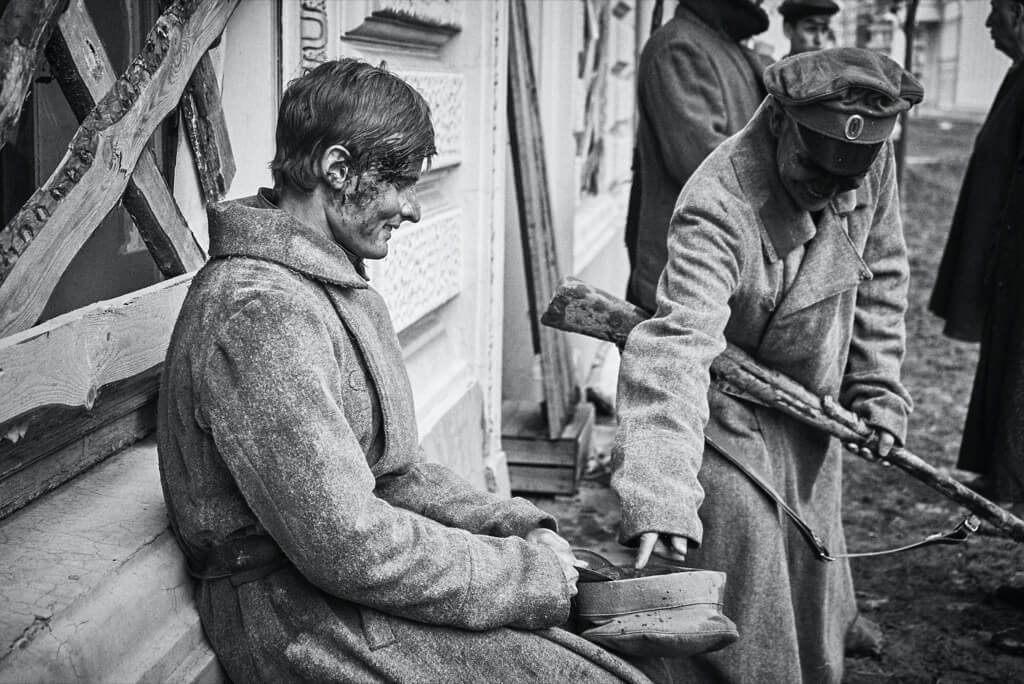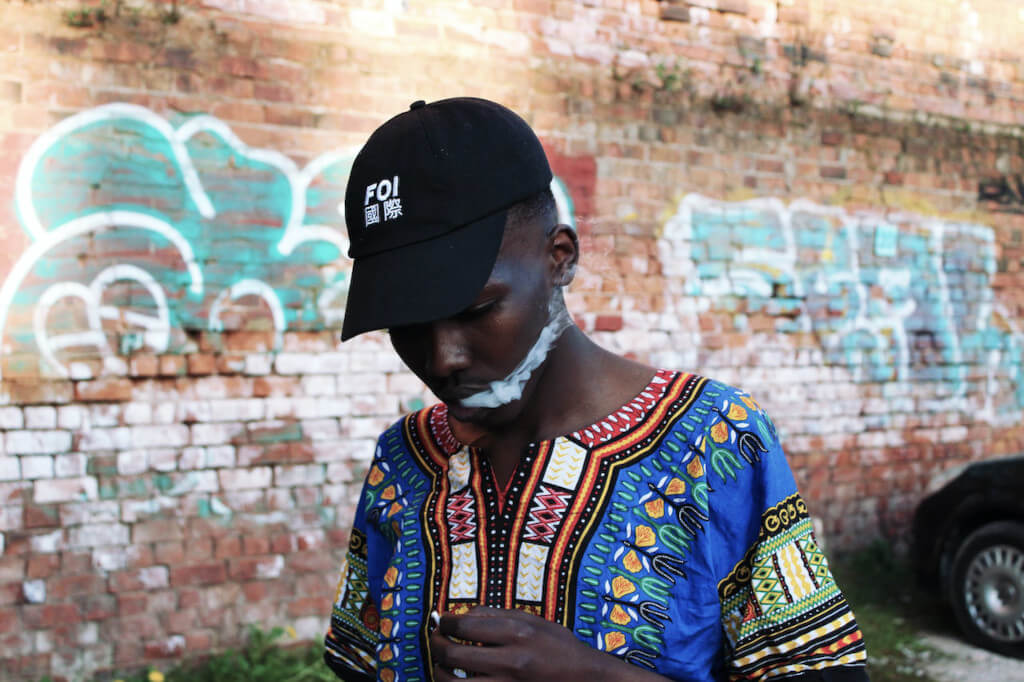In the annals of extraordinary events that have altered the course of an individual’s life, the story of Ted Rodrigue stands out as a testament to the power of circumstance, curiosity, and the human spirit. It was the year 2005 when this remarkable tale unfolded, and Ted Rodrigue, a homeless man whose existence had been defined by the daily struggle for survival, found himself at the epicenter of a dramatic turn of events that would not only change his life but also challenge society’s understanding of wealth, happiness, and the human condition.
Imagine the scene: Ted Rodrigue, a man accustomed to the harsh realities of life on the streets, stumbles upon a weathered, abandoned briefcase. He opens it to find an astonishing sight—bundles of crisp $20 and $50 bills, meticulously stacked inside, amounting to an astounding sum of $100,000. In today’s terms, adjusting for inflation, this fortune would equate to approximately $123,000. It was a windfall of unimaginable proportions, the kind of discovery that only occurs in the wildest dreams of those struggling at the margins of society.
The enigmatic nature of this discovery didn’t end with the piles of cash; it was just the beginning of a journey that would lead Ted Rodrigue into uncharted territory, both in his personal life and in the realm of social experiments.
The offer of this substantial sum of money was not a stroke of random luck for Ted Rodrigue. Instead, it was part of a unique proposition put forth by screenwriter Wayne Powers. Powers, deeply influenced by his experiences in Los Angeles, where he frequently encountered homeless individuals grappling with the harsh realities of life, found himself pondering a profound question: What would happen if a homeless person were suddenly bestowed with a large sum of money?
This singular curiosity was the catalyst for Powers’ conceptualization of a documentary that would not only explore this captivating social experiment but would also delve into the complexities of human behavior, societal perceptions, and the transformative power of wealth.
Showtime’s Involvement
To turn his vision into reality, Wayne Powers needed financial backing and a platform to showcase his documentary. He pitched his idea to executives at Showtime, a network where he had previously worked on the short-lived series “Out of Order.” The executives were intrigued by the concept but were initially hesitant about dispensing a million dollars for the experiment. After much deliberation and negotiation, a compromise was reached, and the budget was scaled down to $100,000—a significant sum by any standard, yet a fraction of the original proposal.
With funding secured, the stage was set for the documentary’s production. However, one crucial piece of the puzzle remained—the selection of the ideal subject, the person who would receive this life-altering windfall.
Ted Rodrigue
Among the myriad of homeless individuals facing adversity in Los Angeles, Ted Rodrigue emerged as the quintessential candidate for Powers’ experiment. The selection of Ted was not arbitrary; it followed several insightful conversations and a deeper understanding of his life story.
A Glimpse into Ted’s Troubled Past
Ted Rodrigue’s life had been marked by adversity from a young age. He candidly shared the painful chapters of his life, which included a tumultuous childhood marred by his mother’s alcoholism and his early initiation into the world of drinking. These early struggles set the stage for a turbulent adulthood, which included stints in prison and, eventually, life on the streets as a homeless individual. Ted expressed a profound desire to break free from the vicious cycle that had ensnared him for so long—a longing for a semblance of normalcy that seemed perpetually out of reach.
The Daily Struggle for Survival
Before the documentary, Ted’s life on the streets was a grueling battle for survival. His meager income was derived from collecting cans and bottles, a task that yielded a modest $20 to $35 on a good day. This meager sum was just enough to meet his basic needs and cater to his vices, which primarily included procuring food, alcohol, and cigarettes.
Despite the harshness of his circumstances, Ted found solace and a sense of liberation in the simplicity of his daily life. His work as a recycling collector afforded him a degree of autonomy, a semblance of control over his existence. He took pleasure in the simple joys of life—moments spent in a serene park, tending to his cherished bicycle, and experiencing the world on his own terms.
In the intricate tapestry of Ted’s life, genuine connections were a rarity. However, one significant relationship stood out—that with Mike, a young man employed at the local recycling plant. To Ted, Mike was more than a friend; he was akin to a son. Their relationship, while not fully explored in the documentary, added depth and a sense of human connection to Ted’s otherwise solitary existence.
Steering Clear of Harder Drugs
While Ted had faced his share of demons, including addiction, he notably avoided the allure of harder drugs that had ensnared many others in similar situations. His primary vices were alcohol and nicotine. He was candid about his past struggles with drug use, detailing the destructive path it had led him down, which included criminal activities and further entrenchment in the cycle of homelessness.
To ensure the success and ethical integrity of the documentary project, Ted Rodrigue underwent a series of screenings and tests. These included a rigorous drug test and psychiatric evaluations. Ted’s ability to pass these assessments not only underscored his suitability for the experiment but also served as a testament to his resilience and determination.
The Impact of Sudden Wealth
With Ted selected as the ideal subject for the experiment, the stage was set for the production of Wayne Powers’ documentary, titled “Reversal of Fortune.” This documentary would provide an intimate and unfiltered look into Ted’s life following his unexpected windfall of $100,000. It aimed to explore the profound impact that such a sudden influx of wealth could have on an individual’s life, choices, and relationships.
“Reversal of Fortune” ignited a firestorm of debate and controversy from the moment it was announced. The ethical dimensions of conducting such a social experiment were under scrutiny. Critics questioned the morality of handing a substantial sum of money to a homeless individual for the sake of entertainment and societal observation. Was it exploitation or an opportunity for transformation? The answers to these questions remained elusive, setting the stage for a riveting exploration of the experiment’s consequences.
Unveiling the Transformation
As the documentary unfolded, viewers were privy to the profound changes in Ted’s life. It was a journey that stretched beyond the monetary windfall. Ted faced decisions that would not only determine his financial future but also challenge his sense of identity and purpose. The allure of newfound wealth clashed with the familiar comforts of his life on the streets.
One of the most compelling aspects of “Reversal of Fortune” was its exploration of the impact on Ted’s relationships. His evolving dynamic with Mike, his closest friend, took center stage. As Ted’s circumstances changed, so did the dynamics of his friendship with Mike. This transformation was a poignant reminder of the complexities that arise when sudden wealth disrupts established social bonds.
The Quest for Happiness
Throughout the documentary, Ted’s journey became a lens through which the pursuit of happiness was scrutinized. Did the infusion of money truly lead to a happier life, or did it bring with it a new set of challenges and complexities? The answers were not straightforward, highlighting the intricate interplay between material wealth and personal contentment.
The Power of Second Chances
Ted Rodrigue’s story was not just about a homeless man who stumbled upon a briefcase of money; it was a testament to the power of second chances. It raised fundamental questions about our society’s approach to homelessness, addiction, and the inherent value of every human life. Ted’s journey served as a reminder that transformation is possible, even in the most unlikely of circumstances.
The discovery of Ted Rodrigue and the subsequent documentary, “Reversal of Fortune,” stand as an enduring testament to the capacity of human stories to captivate, inspire, and provoke introspection. It was a journey that began with the unearthing of a briefcase filled with money but ultimately transcended the boundaries of material wealth. Ted Rodrigue’s life, once marked by hardship and obscurity, was thrust into the spotlight, challenging us all to reflect on the intricate tapestry of human existence, the nature of happiness, and the enduring hope for redemption and transformation, even in the face of adversity. The legacy of Ted Rodrigue’s story continues to resonate, reminding us of the power of empathy, second chances, and the enduring human spirit.




